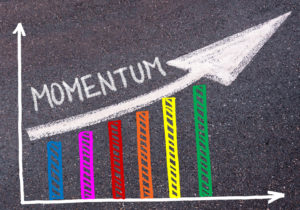So you hosted a virtual event and you earned a bunch of leads, but now what?
In order to not lose the momentum you gained with your virtual event, there are strategies you can implement to make the most out of your post-conference engagement.
Afterall, most event organizers host virtual conferences for lead gen and to establish thought leadership. And as you probably already know, virtual events are a lot of work. Don’t let that work fall short by missing the chance to maximize the power of post-event strategies.
Based on our extensive experience helping brands like you host virtual events, there are some success stories that we’ve seen brands implement to keep the momentum going even after the virtual conference is over.
Offer Your Sessions On-Demand
People get busy, last minute meetings take place and things come up that make attendees miss some or all of your virtual event.
Making the sessions available on-demand offer a way for attendees to watch your virtual event on their own time.
It’s smart to gate on-demand sessions with a lead capture form so that you can keep generating leads even after the event is over.
Email all of your contacts (attendees and non-attendees) with the landing page of all of your virtual conference sessions.
Nurture Your Contacts
Once leads have been generated from your virtual event, don’t expect them to convert into a paying customer without a little nudge.
Drip them thought leadership emails once per week for four weeks. Then on the fifth week, you will have established brand trust and familiarity so you can email them a soft sales push.
Simultaneously, while your team is organizing your virtual event, you should start developing thought leadership resources to utilize in your email drip campaign. Such resources include blog posts, eBooks, case studies, white papers, etc. The goal is for you have these resources lined up so you can start nurturing your new leads right away.
Conduct a Survey
People like to give their opinions. Sending out a survey to all of your virtual event attendees makes them feel involved and it will give you valuable insights into the event you hosted.
Consider gamifying the process and each person who fills out the survey is entered to win a $250 Amazon gift card to increase the number of people who fill out the survey.
It’s also smart to publish the results of your survey and send it to all of your attendees so that they can read about how their peers answered the questions.
Write Wrap-Up Content
Many people who host virtual conferences find themselves with an awesome plethora of video content from the speakers. Don’t let these sessions live in limbo and instead, utilize strategies that leverage all of the presentations.
Here are some ways to make the most out of your virtual conference sessions:
- Create a video with your top 5 favorite presentations
- Offer the sessions on-demand
- Write a blog post with the best tips as learned from the speakers
Tag Your Presenters on Social
We mentioned offering the virtual events sections on-demand. This allows you to share them on social even after the conference is over. Tag the presenters in these social posts and they’ll be sure to re-share them.
Do you have any tips on keeping the momentum going after a virtual event? We’d love to hear from you in the comments below!
